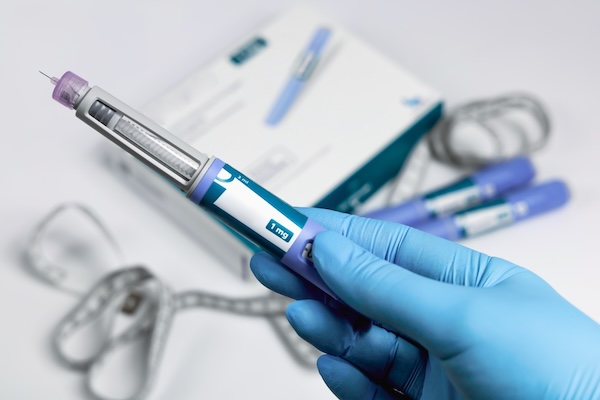
How do you get off semaglutide and tirzepatide? Can you? This a million dollar question, and one that different clinics are taking different approaches. This was a study for diabetics, in Clinical Diabetes 2023, “Medication Deprescribing Among Patients with Type 2 Diabetes: A Qualitative Case Series of Lifestyle Medicine Practitioner Protocols.”
How Do You Get Off Weight Loss Medications?
In English, this study is looking at how do you get OFF medications? You can expect as weight comes off and eating and lifestyle improve, your need for these medications may be less. They talk about how getting patients off “polypharmacy” is good — less medications is better if you can do it. This study is looking at diabetics. They discuss changing diet and increasing exercise can help patients improve when these lifestyle doctors use different mixes of dieticians, health coaches, nurse practitioners, and exercise trainers. Patients are considered “normal” again when their HbA1c is < 6.5.
Study:
- PubMed search for articles on diabetics with de-escalation or deprescribing.
- Their lab tests to decide to deprescribe were varied: HbA1c, insulin levels, lipid panels, C-peptide, C-reactive protein, fasting insulin, CMP, basic labs.
- When weaning off medications, they prioritized those that could cause hypoglycemia first.
- Sulfonylurea, insulin were stopped first
- DPP-4 inhibitors early because of cost/benefit
- GLP-1 and metformin were deprescribed last.
- Many of them used continuous glucose monitors when deprescribing. (A continuous glucose monitor is a small “button” attached to your skin which gives your continuous glucose levels, so you can see your spikes with food and fasting levels.)
They concluded there was no consensus. One point they brought up is the “other” effect that the GLP-1 agonists have. Many studies seem to show an effect of these semaglutide medications beyond weight loss, beyond the diabetes improvement. They are thought to have anti-inflammatory properties and an “other” effect, which makes many doctors hesitant to wean patients off.
Our thoughts at Biohackr Health?
Our patients are not all obese diabetic patients. We do believe in trying to approach health from many ways — exercise, diet, supplements, NAD, hormone support, and semaglutide and tirzepatide when indicated. We do not know what these medications do long-term.
We were disappointed by this journal article as there was no “deprescribing” offramp discussed. That is consistent with what we see in practice, as we have seen everything from reducing the dose, to making the timing between doses more spread out, to helping supplement with NAD and our probiotic which gives glucose support.
The real question which is not answered is: Are the semaglutide and tirzepatide medications a key to biohacking? Are they good long term? Are they as good for those who are at a normal weight without the issues of diabetes, heart disease, and high blood pressure? Or should they just be continued for those with BMIs over 25?
We really like the idea of continuous glucose monitoring. We believe that sugar may the root cause of many disease processes, from heart disease, diabetes, cancer, and dementia to inflammation. Look for us to be adding CGM monitors to our clinics soon.
We will continue to research and update you as the science evolves.

